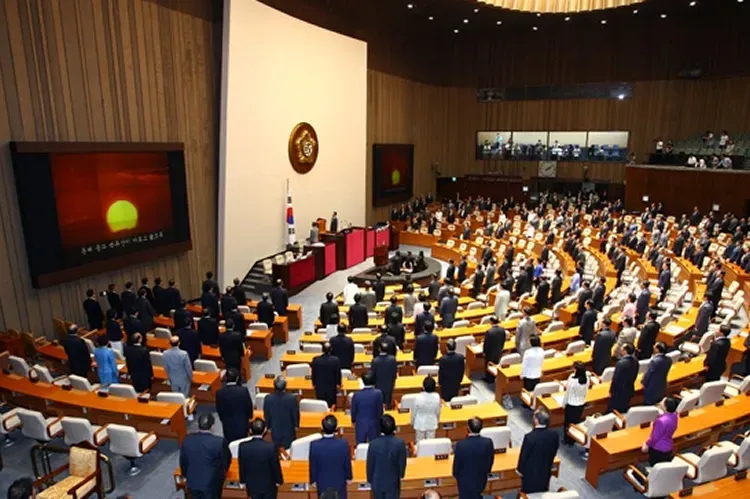South Korea mulls crypto tax according to a report by Korea Times. The news report details the plan to tax crypto currency users on capital gains.
The government of South Korea is seeking to impose taxes on capital gains from transaction of virtual currencies, including bitcoin, according government sources, Sunday. The Ministry of Economy and Finance confirmed it is pushing for the measure to be reflected in tax regulations next year.
“Related discussions have been taking place,” a ministry official said. “The revised bill will be drawn up by the first half of next year.”
A move to pass a related bill has also been taking place at the National Assembly.
A bill on enhancing the transparency of the trading of virtual assets awaits passage at sub-committee level. If the bill passes the Assembly’s plenary session, it will go into effect one year after the regulation is promulgated.
The government is seeking to include capital gains tax on virtual currency regardless of the bill’s passage.
But for this to be reflected in regulations, there needs to be a more precise definition of virtual assets.
The government also needs to decide if it will consider gains from the trading of virtual assets as the type of gains coming from stock trading or real estate transactions.
If this is the case, the government needs to obtain trading records from virtual currency exchanges, to be able to levy taxes accordingly.
The bill on trading of virtual assets requires virtual currency exchange operators to identify traders and retain separate records for each trader.
However, unlike share prices the price of virtual currencies varies according to exchange, so it is more complicated to determine market price at the trading point. South Korea mulls crypto tax as capital gains making it a complicated affair.
Ethereum Istanbul hardfork
Ethereum Istanbul hardfork has been accepted around the world as most have updated to the latest version. Ethereum updates its mainnet in smaller, quicker hardforks rather than larger ones that take time.
Regular small hard forks allow upgrades to be included in more timely and manageable way that large infrequent forks, as described here
Istanbul was approached with a fork-centric approach, where EIPs were proposed for the fork, reviewed then accepted. This resulted in many EIPs being proposed, in various states of readiness. This approach limits the amount of review time per EIP.
Future forks will ideally follow an EIP-centric approach outlined here. This approach will allow EIPs to mature independently of forking schedule. When mature, they can be added to the next scheduled fork.
- Endorsement (by major clients, developers and community stakeholders)
- Implementation (merged into major clients)
- Testing
- Acceptance (Allocate to a specific hard fork)
A hard fork is often misinterpreted as a process of blockchain parting ways but it can also be used for upgrading the current network. In the past, there were few instances of creation of new chains from the existing ones due to a hard fork like Bitcoin Cash, Litecoin, and Ethereum Classic also came into existence after the infamous DAO hack. Istanbul event is a planned fork and will be focused on upgrading a few aspects of the blockchain to improve the performance and efficiency. The 8th network upgrade will take place at the block number 9069000 and expected this week.
Ethereum has previously succeeded in pushing updates to the platform in batches. Byzantium and Constantinople — sub-sections of the massive Metropolis upgrade is an impressive example of such. Ethereum has decided to take the same approach and divided the fork into two parts. Istanbul Hard Fork is Ethereum Improvement Proposals (EIPs) driven. For starters, EIPs are the design documents that provide information about new features including core protocol specifications, client APIs and contract standards.



